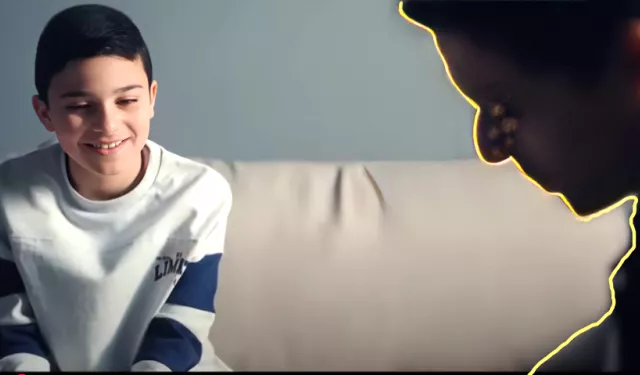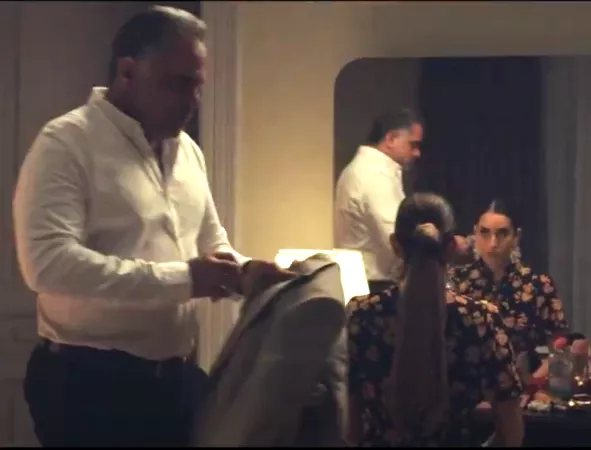
Therapy dramas as drama therapy
The therapist in Egyptian drama: No longer the wild-haired enigma
For decades, Egyptian drama clung to a tired cliché of the therapist as an eccentric oddball with unkempt hair, speaking in incomprehensible jargon, and often the butt of sarcasm. This stereotype didn’t come out of nowhere; it mirrors a widespread cultural discomfort with mental health. Therapy in Arab societies was seen as either laughable or shameful.
But things are shifting—and fast.
Thanks to the creative partnership between screenwriter Mariam Naoum and director Karim El-Shenawy, Egyptian television is beginning to portray therapy, and therapists, with nuance and empathy. In series like “Take Care of Zizi” (2021), “The Seven Year Itch” (2023), and “Lam Shamsia” (2025), the therapist emerges not as a punchline, but as a grounded, insightful figure. These shows don’t just feature mental health, they normalize it.
From observer to participant
Lam Shamsia, the latest Naoum–Shenawy collaboration, struck a cultural nerve, perhaps no surprise since it followed a string of successful joint projects, each pushing the boundaries of what Egyptian drama can do.
What unites these series isn’t just their subject, but how they invite the viewer in. They don’t let you stay at a distance. Instead, they pull you into their emotional core. Watching them often feels like looking in a mirror.
Each series tackles psychological issues in a way that sparks personal reflection. “Take Care of Zizi,” for instance, centers on Attention Deficit Hyperactivity Disorder/ADHD—but you don’t need to have the diagnosis to feel seen. It’s not just about what the show addresses, but how it does it: with empathy, complexity, and attention to emotional truth.
Characters don’t feel like tools crafted to serve a message. They feel like people—flawed, unpredictable, real. The shows resist the heavy-handed “issue drama” trap. Instead, the drama flows organically from character and emotion.
Turning inward
Egyptian TV is going through a quiet revolution. The camera is shifting from the outside world to the inner life. It’s no longer just about what happens; it’s about how people process what happens.
In “The Seven Year Itch,” this shift towards interiority is embodied in the marriage of Adam and Nadine. Their relationship isn’t framed around betrayal or conflict, but through unarticulated psychological dimensions: boredom, loss of desire, insecurity, the accumulation of unasked questions. The dialogue comes across as therapy, even in the absence of a therapist.
These aren’t couples simply blaming one another. They’re dissecting themselves—often painfully. Nadine doesn’t just talk about Adam. She grapples with what motherhood, womanhood, and selfhood mean in a world of mixed signals and relentless pressure.
When others reflect who we are
In “Take Care of Zizi,” reflection is more than a metaphor. Characters literally become mirrors for one another. They reflect each other’s old wounds, creating the chance for a redemptive experience—one that allows them to redefine their pasts and confront them with greater self-awareness and clarity. Zizi sees herself in her lawyer/Murad’s niece—a child struggling with ADHD. But this time, she’s not the confused girl with no support. She’s the adult offering the guidance she once needed, and at the same time, dealing with her own demons.
In “Lam Shamsia,” the mirror cuts deeper. Amina Khalil’s character is forced to relive her own trauma when her stepson experiences sexual abuse. His pain reopens hers. But this time, she fights back—not just against the abuser, but against the powerlessness she experienced as a child victim of abuse. When she cries in the final episode, it’s not just grief. It’s years of repressed rage and sadness breaking through. That emotional reckoning doesn’t just drive the plot—it redefines her story and permits healing.
Rethinking therapy
These shows don’t treat therapy as a sterile, clinical procedure. They frame it as a deeply human, ongoing process—something rooted in life, not confined to a couch. It’s as if the writer and director are reimagining what therapy means—not as a clinical or neutral process, but as a liberating path grounded in shared human experience. Instead of relying on fixed diagnoses and detached professionalism, they present healing as something relational, dynamic, and participatory, where characters actively help each other heal.
“Take Care of Zizi” captures this beautifully. Her therapist doesn’t pathologize her behavior. Instead, he reframes ADHD as an evolutionary trait—a survival mechanism from humanity’s past. That shift doesn’t erase her challenges, but it frees her from the idea that she’s “broken.”
The therapist doesn’t just offer theoretical guidance; he encourages Zizi to mentor the young girl struggling with the same symptoms. This redefines healing as a shared, interactive process—where support and growth go both ways.
“Lam Shamsia” echoes this. Young Yusuf’s recovery from abuse isn’t left to his therapy sessions alone. His stepmother becomes a key part of his healing. Their connection—born out of shared pain—evolves into something redemptive. Therapy here is collaborative, communal. Healing happens in relationships.
Across all three series, the repeated scenes of people seeking therapy aren’t fillers—they’re intentional. They send a clear signal: asking for help isn’t shameful, it’s brave. Therapy isn’t about fixing what’s wrong—it’s about rewriting what was broken.
It’s a call to rethink pain, relationships, even the self.
